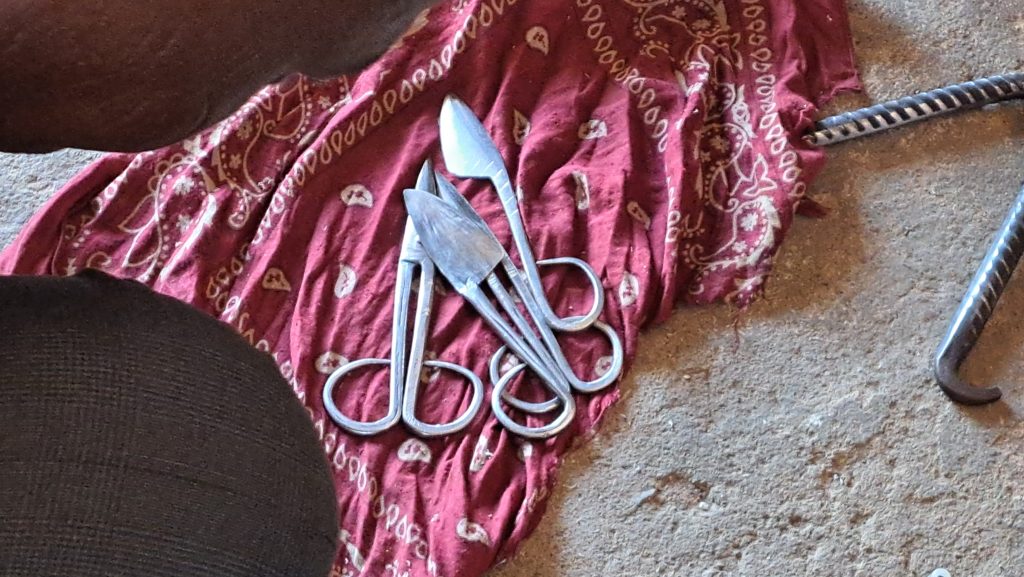By Laudia Sawer
Tema, April 25, GNA – Mr. Seidu Abdulai, a Nigerien Nail Trimmer, also known as ‘Abochi’ in Ghanaian parlance, has said that their processes of cutting and cleaning nails is significantly superior to that of nail stylists.
The ‘Abochi’ nail trimmers, who are usually Nigerians, announce their arrival to their customers by slamming one piece of metal against another, making the klick-klick sound as they go around.
They cut, scratch, and remove dirt from their clients’ toes and fingers with a variety of scissors, including manicure scissors and flat mouth-shaped appliqué scissors, for a cost ranging from GHs2.00 to GHs5.00 per session.
Mr. Abdulai, also known as Seidu Niger among his peers and customers, told the Ghana News Agency in Tema that “when it comes to nail trimming, we clean and trim better than those stylists operating from shops”.
He revealed that he works with 20 to 40 clients on average every day, indicating that people enjoy their job and were prepared to pay for it.
When asked if he was concerned about getting diseases such as HIV from an infected customer, he replied, “If we would be sick, we would have been sick by now; it is Allah who protects us, both the customers and the trimmers”.
He stated that at the age of 41, he had been doing this task for 20 years after his father schooled him in it, emphasizing that he had not contracted any illness.

He added that they boil their instruments in water after the day’s work and that they also apply diluted sanitizers, which he referred to as medication, to the mouth of the scissors before using them on the customer.
Mr. Abdulai revealed that some Nigerians living in Ghana frequently recognize young Nigerians back home who are eager to travel and work, and they assist them in obtaining passports and other necessary documents.
He went on to say that they house them, teach them to trades like selling bitter cola’, nail trimming, and others, and collect a tiny proportion of money from them to cover the costs of bringing them to Ghana and other West African countries.
He stated that they frequently labour for three months and then fly to other nations to do the same before returning to continue working.
Meanwhile, some of their customers have justified their patronage. Mr. Kweku Ayamboya, a private security operative in Tema, said he utilized their services on a regular basis and was not scared of catching any infections because he was confident, they would not cut him because they were skilled.
Ms. Adizatu Adam said she uses them when she is unable to trim her own nails, adding, “Even though I have also heard rumours about the practice spreading diseases, I patronize them when I don’t get time to do it; for example, when I’m traveling or going to an impromptu event and my nails are unkempt”.
She advised that they be taught how to sterilize their tools because their services were inexpensive and convenient, and that they could also provide foot dressing.
She did, however, warn people against using their services frequently because, according to her, some of them alter the shape of the nails, adding, “In the past, I relied on them always, but I noticed that my nails had taken on an irregular form.”
Another customer, Mr. Aziz Awal, stated that he used them because cleaning the dirt from his toes is unpleasant and time-consuming, and that having them do it is easier and more soothing for him.
He claimed that using nail stylists was only for women, thus he preferred to use Nigeriens’ nail trimmers because he does not have time to do it himself.
GNA